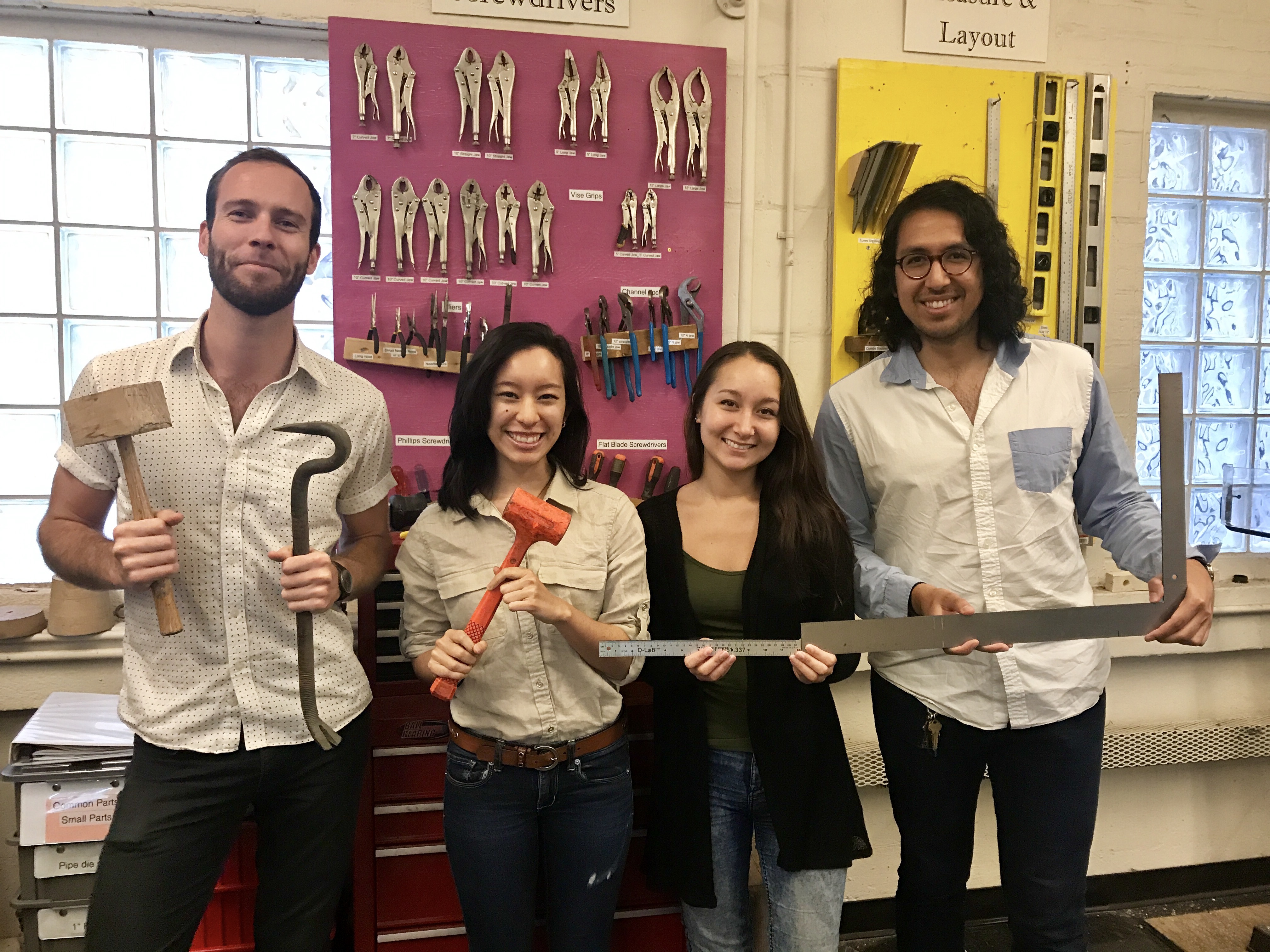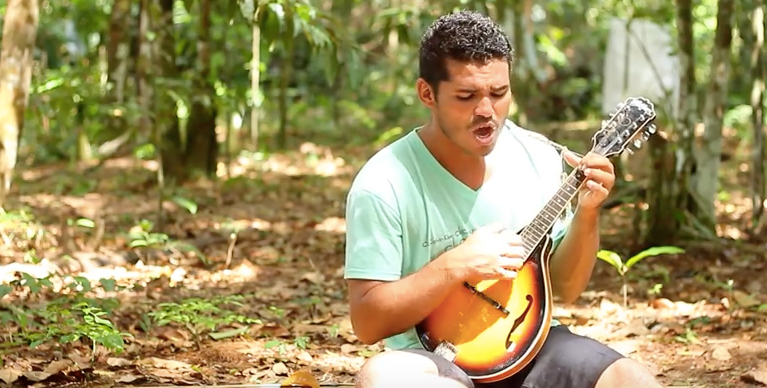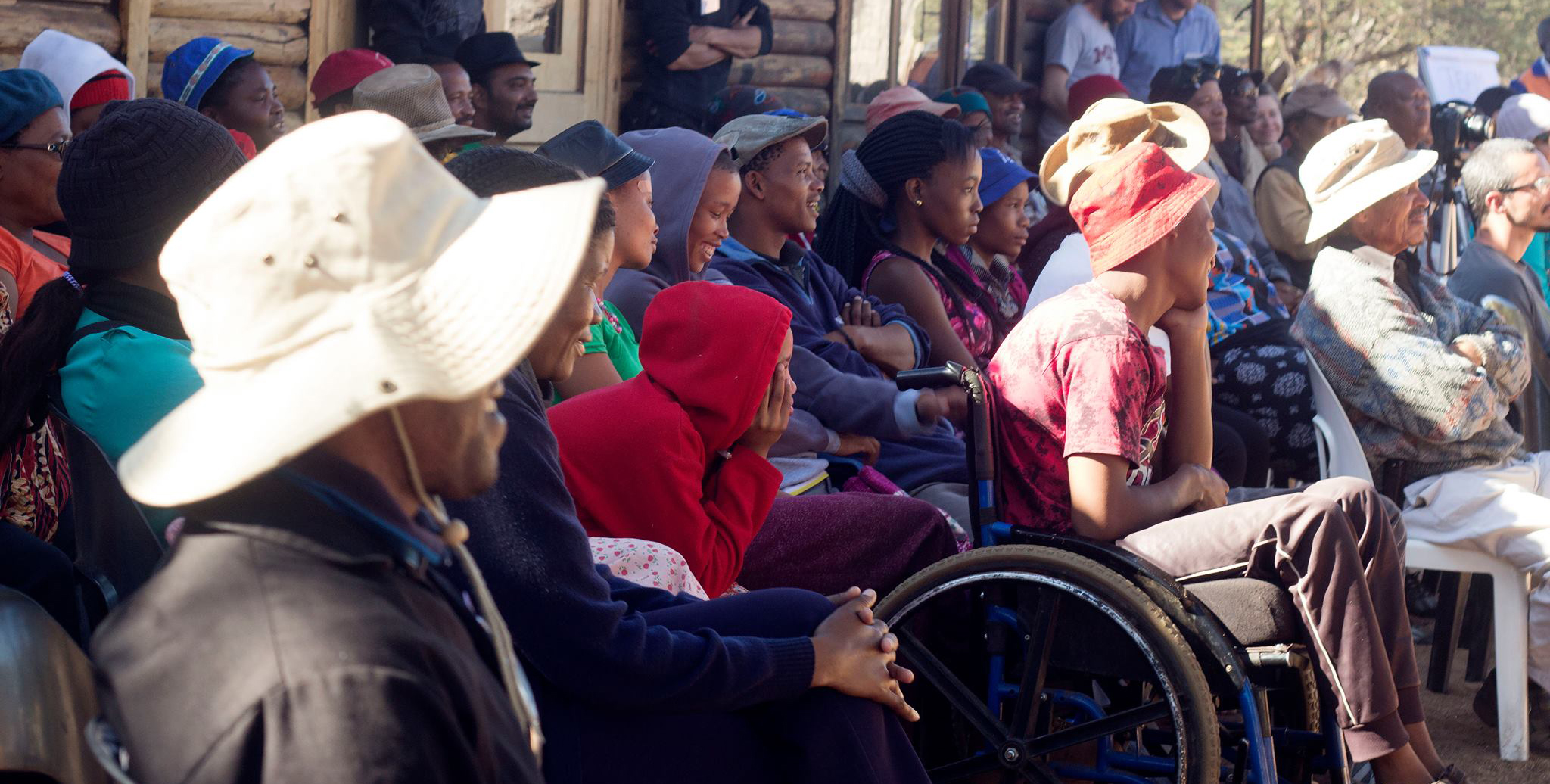Announcing the 2017 IDIN Monitoring and Evaluation Fellows

From left to right, IDIN Monitoring and Evaluation Fellows Toby Childs, Trish Abalo, Colette Eustace, and Gabriel Barrientos, take a minute for a quick snapshot in the D-Lab Workshop before heading off onto their summer measurement, evaluation, and learning placements.
With just one week until our first International Development Design Summit of the year begins, the IDIN team is gearing up for a busy summer! This year, we’re thrilled to have four Monitoring and Evaluation Fellows on board to help us track, measure, and learn from this year’s design summits and community partnerships.
Recently, we chatted with those fellows —Toby Childs, Gabriel Barrientos, Colette Eustace, and Trish Abalo — to learn more about their work this summer as well as what they would build if they had infinite resources and skills.
We’re so excited to have you on board! Tell us a little bit about yourself.
Toby: I am getting my Master’s at Columbia University in development practice, and just finished my first year. I grew up outside of Boston. Since moving away in undergraduate, I’ve lived in six different cities around the world on three different continents. I’m a traveler, outdoor adventure enthusiast, and now working to build a life that encompasses all the things I love: travel, adventure, and giving back to the communities I’m exploring, and making the world into a more globally minded space.
Gabriel: I’m originally from Northern Virginia. My parents are from Guatemala and Chile. I have one older brother. I went to the University of Virginia, and I’m currently at Columbia University in the School of International and Public Affairs program. I love sports and dancing, and being with people and being a bit of goof ball. I also really love what I’m studying and my field.
Colette: I’m from New York, and currently studying at Columbia University School of International and Public Affairs, getting an MPA in development practice. I’m really interested in working on economic development and political development. My past work and interest is in Central America, focused on reducing gang violence, citizen insecurity, and marginalization of indigenous communities.
Trish: I’m from Michigan, and graduated recently from Michigan State University with my Bachelors in Interdisciplinary Studies. I currently work for the Global Center for Food Systems Innovation at MSU. My professional interests are evolving, and currently intersect within adult learning, capacity building, and global solidarity work. I also really like modern dance, systems thinking, and art history.
What IDIN projects will you be working on this summer, and with which partners?
Toby: My mission this summer is to do some qualitative monitoring and evaluation on Creative Capacity Building trainings in Eastern and Southern Africa: data gathering, story telling, and helping partners manage the task of quantifying the impact that Creative Capacity Building can have on a community. I’ll be working with partners such as Kulika in Uganda; Twende Social Innovation Center in Tanzania; Foondi and Global Minimum in Kenya; World Vision, Kafue Innovation Center, and the National Technology Business Center in Zambia.
Gabriel: I will be attending IDDS Climate Change Adaption in Colombia, and my role will be monitoring and evaluation fellow. I’ll also be working with C-Innova in Bogota, and working with them to hash out a monitoring and evaluation plan for their organization.
Colette: I will be going to Guatemala working with Link4 in Solola, and my role will be a monitoring and evaluation fellow during the design summit, and post-summit, Link4 wants to understand the more long-term impact of the summit. They want to also understand the community’s interest in design thinking, and to develop a long-term theory of change and M&E framework.
Trish: I’m going to IDDS Sisaket in Thailand to work with DSIL and Raitang Organics as a monitoring and evaluation fellow (aka data wrangler). We’ll also be working on setting up an innovation center that focuses on local needs and organic agriculture.
What are you most interested to learn, explore, or discover about local innovation in the monitoring and evaluation process?
Toby: Before this, I was working with an organization based on development through partnerships and enabling community leaders to be able to have the impact that they envisioned. With Creative Capacity Building, it’s almost like training the next community leaders that will then be able to have their vision. It’s a next deep dive into the kind of development that I strongly believe in which is development from within. I’m excited to explore what D-Lab has been doing and the impact they’ve had running a program such as Creative Capacity Building. Learning about the impact of creativity and design on individuals and communities.
Gabriel: I really don’t have as much experience in monitoring and evaluation or innovation in general. IDDS is such an interesting concept of doing design, and co-creation to foster development. I’m super interested just to see how that machine works, how IDDS brings these people together from different backgrounds, and I want to see this co-creation happen firsthand. From a monitoring and evaluation perspective, I want to see how the participants view their growth, and how we can quantify and measure that, how to operationalize that.
Colette: I’m super excited for IDDS specifically learning about the process of co-creation and design and seeing it in action. We’ve gotten to read a lot about this, I’m excited to see it happening live. I’ll also be conducting some interviews and videos, to see the transformation of participants over the two weeks. Then with monitoring and evaluation, I’m really excited to tackle it in a very structured way. I’ve done research in the past, but it’s been on me to think about how to structure it. It’s nice to have a great starting point, and take what I learn from that experience through to the rest of the summer.
Trish: I’m really interested in trying out ways to measure learning through the summit. This idea of assessing learning and local innovation in dynamic environments and contexts is really exciting to me. I think that’s so important because we need evolving views of the role of building resilient systems, so it will be valuable to be up close trying to understand them. Also, I’m very interested in recognizing and navigating existing power dynamics within these communities, being very respectful of them, understanding them, make sure that we’re engaging them in socially just ways.
On a personal level, what part of the summer are you most excited about?
Toby: I’ve been working in East Africa, so to deepen my understanding of the diversity of that region will be interesting, and exploring a whole new region of southern Africa – Zambia. I’m someone that gets inspired by the people I’m around. I feed off other people’s energy, and so to get to spend my summer getting to meet a wide range of people so dedicated to this work does have an impact on the way that I approach my work.
Gabriel: I’m excited to get to know a lot more about Colombia as a country, and the people within it. I’ve visited for a week, but it was bittersweet and short. I got to go, but I didn’t get to know it. I’m excited to get to be able to truly live in Colombia for a period of time. Also, I’m excited to be able to play soccer while I’m there.
Colette: I’m super excited for whatever down time there is during IDDS to participate a bit, and to learn, and try out these different things. I’ve never welded or made something from wood, but I think it’s really exciting and everyone should know how to do these things. I’m also excited to spend more time in Guatemala, and get to know the community as I spend the summer there.
Trish: I’m really interested to get to know people as individuals at the summit. Anytime I meet someone new involved in this space, they come with their own dynamic story and experiences. I really enjoy getting to know people for that reason. And I’m also ready to read a lot. I need to decide what books to read.
If you had no resource limits, and you could build anything, what would it be?
Toby: I think I would build a teleportation device. It would be really helpful in my travels this summer and saving time. Our world is starting to become so connected through the internet, but there’s still this screen between us, so if we could ease the connection human to human, we would have more honest and compassionate interactions. I think it would be beautiful.
Gabriel: I think prototypes of this technology exist, but in an ideal world, a flawless product where you could plug something into your ear where you could instantly get a translation, so you could have a conversation with anyone. The sillier version is the same thing, but for a dog, so you could decode its barking.
Colette: I would create a system for equitable employment for everyone in the world. I’m obsessed with SDG8, and for everyone to have the option to pursue a career in the formal economy if they would like. I would also like to focus on youth employment, including in Central America with its role in preventing gang recruitment.
Trish: Networks of locally-focused food systems with community-centered programming, and focus on intergenerational and accessible food justice capacity building. It would have people from all different sectors, activists working and learning with researchers, makers, and artists. I think food systems are so crucial. People build so much there. Locally contextualized, and you would be able to connect across neighborhoods and regions, creating genuine relationships and sharing practices.






